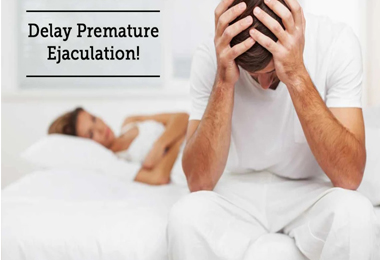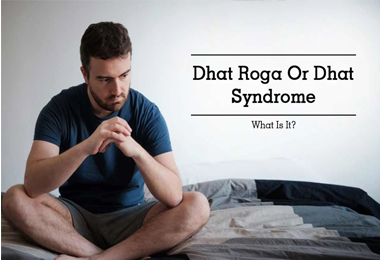Specialities

सेक्स की इच्छा शक्ति में कमी
Low libido (low sex drive) is a decrease in the frequency and/or intensity of sexual desire that you once had. It can be temporary or long-term.
Libido naturally varies significantly from person to person. Your sex drive can also change throughout your life. There’s no right or wrong level of libido. Some people have sex or feel like having sex every day, while others may feel like having sex a few times a year or not at all.
Several conditions and situations can lead to low libido, including:
- Relationship/Mental Health issues.
- Medical conditions.
- Hormonal imbalances.

इरेक्टाइल डिसफंक्शन /नपुंसकता
Erectile dysfunction, or ED, is the most common sex problem that men report to their doctor. It affects as many as 30 million men.
ED is defined as trouble getting or keeping an erection that's firm enough for sex.
Though it's not rare for a man to have some problems with erections from time to time, ED that is progressive or happens routinely with sex is not normal, and it should be treated.
ED can happen:
- Most often when blood flow in the penis is limited or nerves are harmed
- With stress or emotional reasons
- Enim ad minim veniam quis nostrud exercitation

सेक्स करने में दर्द महसूस करना
Pain during sex is one of the more common gynecologic problems healthcare providers treat. It affects 10% to 20% of people in the India at some point in their lives. The pain is often due to physical factors or medical conditions, but it can also be psychological.
What causes it?
- Small tears in the foreskin that may not be visible
- Inflammation of the head of the penis (balanitis)
- Irritation from previous sexual activity or other non-sexual activities
- Testicular pain and swelling

Pleasure/Orgasm न मिलना / Not Getting Pleasure/Orgasm
Male anorgasmia is when a person with a penis has persistent delay having or an inability to achieve an orgasm even after sexual stimulation. Anorgasmia, or Coughlan's syndrome, affects both men and women.
The condition should not be confused with erectile dysfunction (the inability to achieve an erection) or low libido (lack of sexual desire).
There are multiple causes. They include:
- Physiological problems present at birth
- Side effects from surgery
- Medications

अराउज़ल की तकलीफ / Arousal Problem
These disorders make it difficult or impossible to become physically aroused during sexual activity, can occur in both men and women. The most common type in men is erectile dysfunction. When a person has arousal disorder, he or she may be interested in sexual activity, but be unable to get any physical satisfaction from it.
What causes it?
- Concern about sexual performance.
- Marital or relationship problems.
- Depression, feelings of guilt.

प्रीमेच्योर इजेकुलेशन / Premature Ejaculation
Premature ejaculation occurs when a man has an orgasm and ejaculates earlier during intercourse than he or his partner would like. It’s a common problem, affecting 30% to 40% of men. Causes include physical problems, chemical imbalances and emotional/psychological factors. Treatments include learning techniques to delay ejaculation, counseling and medications.
What causes premature ejaculation?
- An underlying erectile dysfunction diagnosis.
- A hormonal problem with oxytocin levels
- A penis that is extra sensitive to stimulation.

पोर्नोग्राफी एडिक्शन / Pornography Addiction
Porn addiction is, in theory, when you can’t stop looking at porn, even if you want to. And the obsession gets to the point that it interferes with work, relationships, and other parts of daily life. It’s easy to understand how this could be a problem with the widespread availability of internet porn today.
Porn Addiction Signs:
- You stop doing things you really enjoy so that you can see more of it.
- You neglect personal care.
- You lose interest in other activities.
- It affects your job or schoolwork.

डिले इजेकुलेशन / Delay Ejaculation
Delayed ejaculation — sometimes called impaired ejaculation — is a condition in which it takes an extended period of sexual stimulation for men to reach sexual climax and release semen from the penis (ejaculate). Some men with delayed ejaculation are unable to ejaculate at all.
Symptoms:
- Delayed ejaculation is an issue for you or your partner
- You have another known health problem that might be linked to delayed ejaculation, or you take medications that could be causing the problem
- You have other symptoms along with delayed ejaculation that might or might not seem related

धातु रोग / Dhat Syndrome
Dhat Syndrome is a disorder in which men experience unprompted (involuntary) ejaculation i.e, discharge of semen without any sexual activity. Imbalance of emotions, alcohol consumption, are among some of the causes of Dhat Syndrome. Some men suffer from ejaculation during sleep. Frequent Dhat Syndrome in a male can cause adverse effects on the body.
Dhat Syndrome symptoms:
- Dhat Syndrome
- Lose of Appetite
- Back Pain
- Depression

स्पर्म काउंट का कम होना / Low Sperm Count
The main sign of low sperm count is the inability to conceive a child. There might be no other obvious signs or symptoms. In some men, an underlying problem such as an inherited chromosomal abnormality, a hormonal imbalance, dilated testicular veins or a condition that blocks the passage of sperm may cause signs and symptoms.
Low sperm count symptoms might include:
- Problems with sexual function
- Pain, swelling or a lump in the testicle area
- Decreased facial or body hair or other signs of a chromosome or hormone abnormality

अन्य सेक्स समस्याएं
Sexual dysfunction is any physical or psychological problem that prevents you or your partner from getting sexual satisfaction. Male sexual dysfunction is a common health problem affecting men of all ages, but is more common with increasing age. Treatment can often help men suffering from sexual dysfunction.
The most common problems men face with sexual dysfunction are troubles with ejaculation, getting and keeping an erection, and reduced sexual desire.

 Get Appointment
Get Appointment